The Economics and Statistics Division maintains archives of previous publications for accountability purposes, but makes no updates to keep these documents current with the latest data revisions from Statistics Canada. As a result, information in older documents may not be accurate. Please exercise caution when referring to older documents. For the latest information and historical data, please contact the individual listed to the right.
<--- Return to Archive
For additional information relating to this article, please contact:
September 01, 2023COMPENSATION OF EMPLOYEES, Q2 2023 Quarter-over-quarter (Q2 2023 vs Q1 2023, seasonally adjusted)
Total compensation of employees for all industries increased by 3.1% in Nova Scotia, rising to $10.36 billion in Q2 2023. National employee compensation was up 2.1% in the second quarter of 2023. All provinces recorded quarter over quarter with gains in Q2 2023. The fastest rise was reported in Nova Scotia and the slowest in Newfoundland and Labrador.
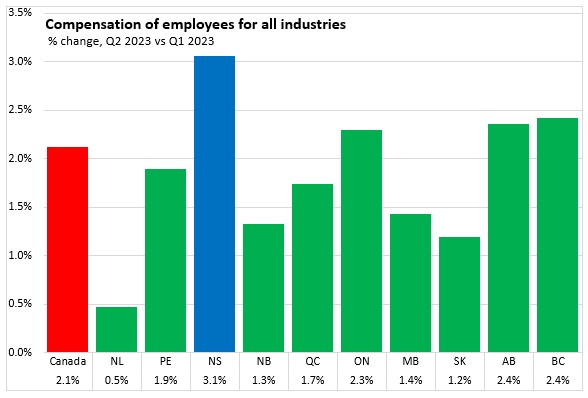
Year-To-Date (January-June 2023 vs January-June 2022)
Nova Scotia's employee compensation for all industries was up 7.0% in the first half of 2023 when compared to the same period in 2022. National employee compensation grew 6.4%. All provinces recorded year-over-year gains in employee compensation during the first half of 2023. The fastest increase was reported in Prince Edward Island, while the slowest rise was in Québec.
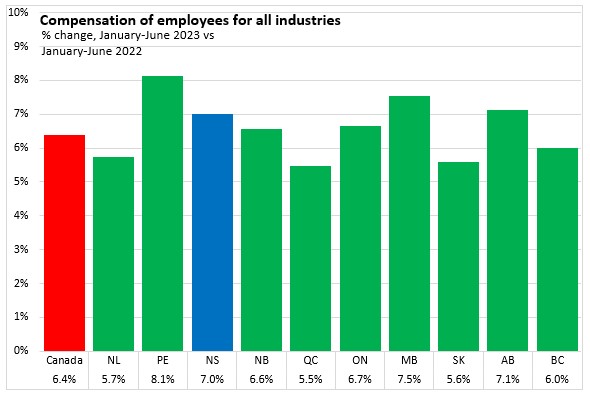
Year-to-date growth in total wages and salaries by industry show that the strongest contributions to rising payrolls came from the professional and personal services industries followed by manufacturing and construction. Wage and salary totals were down for information and cultural industries as well as the Federal non-military employees (whose total wages spiked in February and March of 2022). In percentage terms, military (spiked in June 2023), manufacturing and construction sectors posted the largest gains during the first half of the year in Nova Scotia.
Note that changes in employee compensation reflect changes in wages and salaries as well as changes in contributions to social insurance. Changes in wages and salaries include the effects of changing numbers of employees, changing hours worked and wage rates as well as effects from differences in pay period from one year to the next.
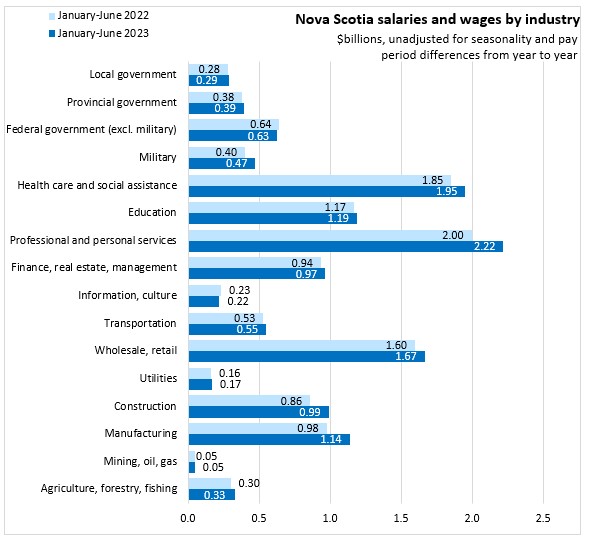
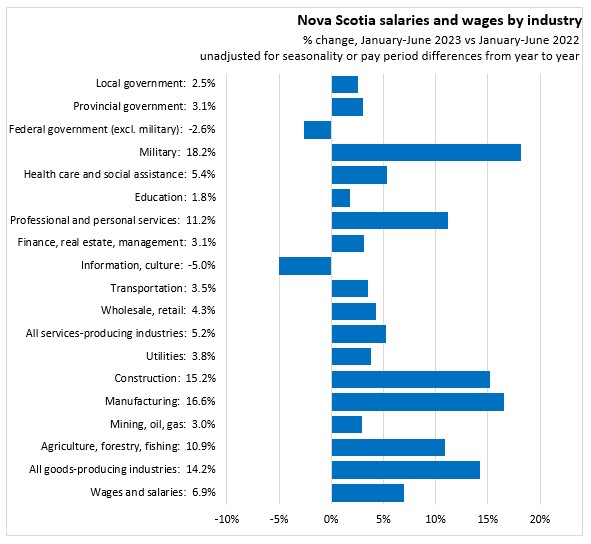
Trends
Monthly data for employee compensation (seasonally adjusted) peaked in June of 2022, with declines in each of the next three months. Since October 2022, Nova Scotia's monthly employee compensation has been on a rising trend and surpassing the previous peak.
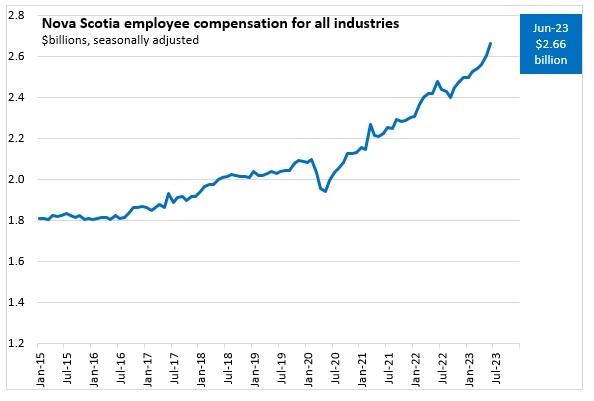
On a year-over-year basis, growth in employee compensation increased 7.6% (June 2023 vs June 2022). Year-over-year growth in employee compensation was slowing in early 2023 but showed strong gains in May and June 2023.
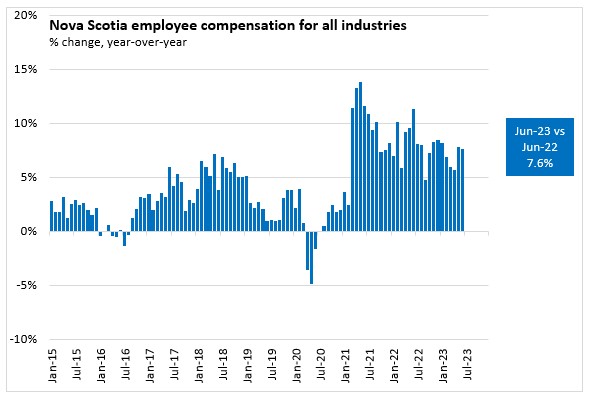
Source: Statistics Canada. Table 36-10-0205-01 Wages, salaries and employers' social contributions (x 1,000)
<--- Return to Archive